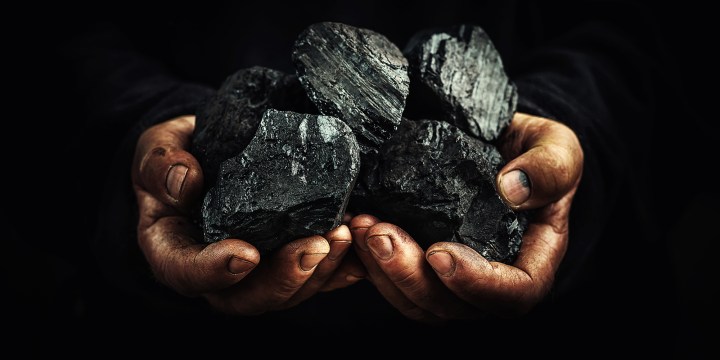ISS TODAY: ANALYSIS
Kenya’s charcoal bans continue to fuel a destructive smuggling crisis

Solutions lie in making cleaner and more modern cooking fuels accessible and affordable to households across the country.
First published by ISS Today
Mohamed Daghar, Regional Coordinator — Eastern Africa, Enact project, ISS Nairobi.
Kenya’s charcoal industry may be mostly informal, but it’s a big deal to the millions who rely on it for fuel or to earn a living. The trade employs around 700,000 people, with an annual market value of over $427-million. This makes it Kenya’s fourth biggest revenue earner after tourism, horticulture and tea. Almost 1.4 million households (12% of the total) depend on it for cooking.
But charcoal production is taking a toll on local ecosystems. Large-scale tree felling threatens the survival of over 100 local species, such as the acacia, and is destroying water catchment areas.
To address environmental concerns, the Kenyan government imposed a series of trade bans on the charcoal business. In February 2018, it renewed the 2017 ban on logging from public and community forests, and some county governments followed suit. The prohibitions are set to end this year, although they may be extended.
However, these legal and policy measures are failing to ensure the sustainability of charcoal production or protect the environment. They have also led to widespread smuggling. Rather than regulating the trade, the bans have driven the charcoal business underground.
Corruption enables charcoal smuggling both in Kenya and across the borders in Tanzania, Uganda and South Sudan. In the counties where it is only legal to move charcoal internally, such as Kitui, smugglers forge permits or bribe state officers to move the product out of the county.
Reports suggest that cartels made up of state actors — including chiefs, police, county inspectorates, politicians and Kenya Forest Service officials — are involved in moving illicit charcoal within the country and to neighbouring states. Bribes cost the smuggler upwards of $90 regardless of the number of charcoal bags and trucks.
The fine for smuggling charcoal inside Kenya and in neighbouring countries is $90 per bag or three months’ imprisonment. While there have been cases of smugglers being fined by the Kenyan courts, the penalty is minor compared to the potential profits. In some cases, smugglers can pay the fine and then bribe the police to release the charcoal to its destination.
The country’s 2015 Charcoal Rules and Regulations 2015 allows the fuel to be extracted from government land only. Most charcoal is however produced from privately owned and managed land. The law allows this as long as the owners have a license to manufacture charcoal for commercial purposes or to generate more than three bags for personal use. Distinguishing whether charcoal originates from government or private land is however impossible.
Regulations such as the 2013 National Environment Policy emphasise a need for divergent and sustainable environmental programmes. These include tree-replanting schemes, efficient charcoal-producing kilns, tree inter-cropping, and civic education on environment protection. However, most of these programmes have either not been implemented or are ineffective.
Other renewable energy sources, such as coconut husks or briquettes made from sawmill dust, haven’t been popularly accepted as alternatives to charcoal. This is because charcoal production involves using low-cost traditional kilns, while briquettes are expensive to produce. Buying and installing machines such as dryers, which need to be set up in a factory-like environment, requires a fair amount of capital.
According to Murefu Barasa, Managing Partner of EED Advisory Limited, which works on energy challenges, “charcoal smuggling will not be ended by attempts to formalise the trade or make its production sustainable.”
The price of charcoal, he says, “does not include the cost of the raw materials because the trees are simply felled and not paid for.” Formalising the trade would have to factor in the cost of the wood, making charcoal more expensive than it currently is. And bans have already pushed up the charcoal price. Charcoal in Kenya is now more expensive than kerosene, which strains many Kenyans’ livelihoods and quality of life.
The solution to charcoal dependency and smuggling lies outside the sector. Cleaner and more modern cooking fuels, such as electricity and liquefied petroleum gas, should be made cheaper to encourage households to use these as a preferred source of energy.
Kenya is Africa’s largest producer of geothermal energy and has an electricity penetration of 75%, yet the cost of access is still too high for many people. The country has a strategy to make liquefied petroleum gas the primary cooking fuel through subsidies and other interventions, but implementation is slow. Prioritising access to these alternatives would reduce dependency on charcoal.
Instead of bans, county governments could consider offering charcoal-producing communities in rural areas alternative livelihoods. More emphasis on agriculture-related activities would reduce their dependency on charcoal as a source of income.
The United Nations Environment Programme has published many reports on land restoration, including how this can align with the Sustainable Development Goals. Kenya should develop programme guidelines on restoring ecosystems that have been damaged by charcoal production on both public and private lands. Together with the trade bans, these efforts will address environmental and livelihood insecurity. DM
Mohamed Daghar, Regional Coordinator — Eastern Africa, Enact project, ISS Nairobi.
This article was first published by ENACT. ENACT is funded by the European Union (EU). The contents of this article are the sole responsibility of the author and can under no circumstances be regarded as reflecting the position of the EU.

















 Become an Insider
Become an Insider
Comments - Please login in order to comment.